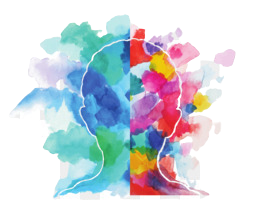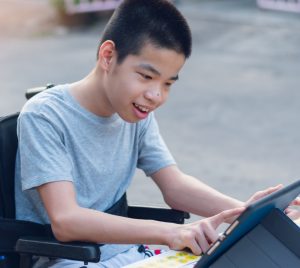Why Working Memory Fails and How to Bolster It
 Many experts today argue that attention deficit/hyperactivity disorder is not, at its core, an attention problem, but rather a self-regulation problem exacerbated by weak working memory. Read more ›
Many experts today argue that attention deficit/hyperactivity disorder is not, at its core, an attention problem, but rather a self-regulation problem exacerbated by weak working memory. Read more ›
 Many experts today argue that attention deficit/hyperactivity disorder is not, at its core, an attention problem, but rather a self-regulation problem exacerbated by weak working memory. Read more ›
Many experts today argue that attention deficit/hyperactivity disorder is not, at its core, an attention problem, but rather a self-regulation problem exacerbated by weak working memory. Read more ›
 Learning disruptions have been an unfortunate but all-too-frequent sight during the pandemic. But not every student felt those effects evenly as schools shifted between remote and in-person options. Read more ›
Learning disruptions have been an unfortunate but all-too-frequent sight during the pandemic. But not every student felt those effects evenly as schools shifted between remote and in-person options. Read more ›
 Miché Aaron has always been a high achiever. The 29-year-old is in her third year of a planetary sciences doctoral program at Johns Hopkins University, where she researches minerals found on Mars. She’s a former NASA space grant scholar and hopes to become an astronaut one day.
Miché Aaron has always been a high achiever. The 29-year-old is in her third year of a planetary sciences doctoral program at Johns Hopkins University, where she researches minerals found on Mars. She’s a former NASA space grant scholar and hopes to become an astronaut one day.
But last year, Aaron was barely keeping it together — missing classes, late on assignments and struggling to explain that she understood the required material to pass her qualifying exams. Her academic adviser warned that if she didn’t get professional help she would flunk. Read more ›
 Training community members to help families navigate obstacles to care increases the likelihood that children from low-income and minority groups will be assessed for autism by specialists, according to a new study. The approach could help reduce disparities in autism diagnosis and treatment. Read more ›
Training community members to help families navigate obstacles to care increases the likelihood that children from low-income and minority groups will be assessed for autism by specialists, according to a new study. The approach could help reduce disparities in autism diagnosis and treatment. Read more ›
 More than half of states are falling behind in meeting their responsibilities to students with disabilities under the Individuals with Disabilities Education Act, federal officials say.
More than half of states are falling behind in meeting their responsibilities to students with disabilities under the Individuals with Disabilities Education Act, federal officials say.
In an annual evaluation of each state’s special education performance, the U.S. Department of Education found that just 22 states qualified for the designation of “meets requirements” for the 2019-2020 school year for students ages 3 to 21. Read more ›
 Being social and making friends isn’t always easy. Relationships have many subtleties. But people with autism spectrum disorder, or ASD, struggle more than most. For them, communicating with others can be very difficult. Read more ›
Being social and making friends isn’t always easy. Relationships have many subtleties. But people with autism spectrum disorder, or ASD, struggle more than most. For them, communicating with others can be very difficult. Read more ›
 When I was nine, my teacher told my parents I was all over the place. I already had the energy for five dance classes a week, netball, French lessons, piano lessons, a book club and school band. However, she thought I still didn’t have enough channels for my “creativity” and suggested they enroll me in drama school as well, so they did. Did it help me focus? Of course not.
When I was nine, my teacher told my parents I was all over the place. I already had the energy for five dance classes a week, netball, French lessons, piano lessons, a book club and school band. However, she thought I still didn’t have enough channels for my “creativity” and suggested they enroll me in drama school as well, so they did. Did it help me focus? Of course not.
Noelle Faulkner shares her experience as a women with ADHD. Read more ›
 Yoga and breathing exercises can improve attention and decrease hyperactivity in children with attention deficit hyperactivity disorder (ADHD). A team of psychologists at Ural Federal University also found that after special exercise training, children with ADHD could engage in complex activities for longer without getting tired. Read more ›
Yoga and breathing exercises can improve attention and decrease hyperactivity in children with attention deficit hyperactivity disorder (ADHD). A team of psychologists at Ural Federal University also found that after special exercise training, children with ADHD could engage in complex activities for longer without getting tired. Read more ›
 As the nation’s leading expert on psychiatric disorders in children and the leading researcher on the effects of psychiatric drugs on kids, Dr. Glen Elliott says that doctors and even teachers are too quick to recommend medicating young minds rather than taking the necessary steps to find out if drugs are even necessary. Dr. Elliott’s book, Medicating Young Minds, tells parents what to expect, the questions to ask, the treatment they deserve from a concerned doctor, and even what tests to demand to make sure that drugs are the best recourse. Read more ›
As the nation’s leading expert on psychiatric disorders in children and the leading researcher on the effects of psychiatric drugs on kids, Dr. Glen Elliott says that doctors and even teachers are too quick to recommend medicating young minds rather than taking the necessary steps to find out if drugs are even necessary. Dr. Elliott’s book, Medicating Young Minds, tells parents what to expect, the questions to ask, the treatment they deserve from a concerned doctor, and even what tests to demand to make sure that drugs are the best recourse. Read more ›
 For students with disabilities, the pandemic has been a landscape of extremes. Some have thrived with distance learning and want to continue in the fall, while many have languished without the in-person support of therapists and teachers and have lost ground academically, socially and emotionally. Read more ›
For students with disabilities, the pandemic has been a landscape of extremes. Some have thrived with distance learning and want to continue in the fall, while many have languished without the in-person support of therapists and teachers and have lost ground academically, socially and emotionally. Read more ›